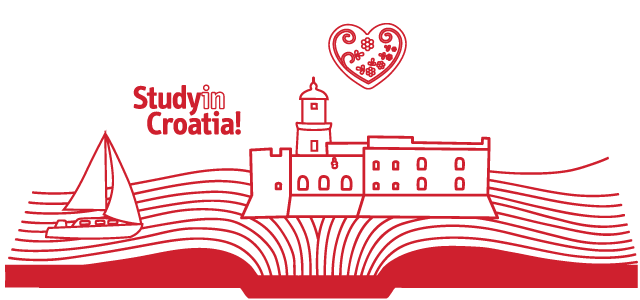Facts and figures
Country name: Republic of Croatia
Local form: Republika Hrvatska
Date of independence: 25 June 1991
Constitution: adopted on 22 December 1990; revised 1997, 2000, 2001, 2010,2014
Government type: Since the adoption of the 1990 Constitution, Croatia has been a democracy. Between 1990 and 2000 it had a semi-presidential system and since 2000 it has a parliamentary system.
Member of the EU, since 1 January 2023 part of the Schengen Area.
Voting: 18 years of age, universal, voting is not compulsory.
Capital city: Zagreb (population of 769,944 – 2021 census)
Administrative divisions: 20 counties and one city (Zagreb)
Population: 3,888,529 (2021 census)
Total area: 87,609 sq. km
Number of islands: 1,185 (47 inhabited)
Time zone: CET (GMT+1)
International dialling code: +385
Monetary unit: the Euro - EUR
Power supply: 220V, 50Hz
Demographics: the majority of the population are Croats, with the largest minorities being Serbs, Bosniaks, Italians, Hungarians, Albanians, Slovenes and Czechs.
Cultural life
Despite being a small country, Croatia has as many as seven sites on the UNESCO World Heritage List and ten Intangible Cultural Heritage elements recorded on the UNESCO List. Croatia is ranked 4th in the world in the UNESCO list for its intangible heritage, after China, Japan and Korea.
Croatia’s rich cultural heritage can be discovered not only within the numerous museums, galleries and churches throughout the country (many of which appear on the UNESCO World Heritage List) but also in diverse musical, film, dance and theatre festivals and other cultural events that take place throughout the year. Further information about Croatian cultural heritage is available on the web site of the Croatian Ministry of Culture.
A list of all of Croatia’s museums that can be visited throughout the year can be found on the web site of the Museum Documentation Centre.
The summer brings extra cultural life to the Croatian coastal area, offering a whole range of jazz festivals, concerts and traditional events. However, a great number of events take place throughout the year, including rock, pop and classical concerts, film festivals, theatre productions and exhibitions.
For a list of cultural events in Croatia, please visit the web portal about the Croatian culture.
Cuisine
Croatian cuisine is specific to every region, reflecting the country's geography, history and culture. The northern and southern areas of the Adriatic are characterised by differences in taste and preparation of more Mediterranean foods. The tradition of grilling and roasting fish and delicacies of the sea has been carried down by generations. In the north of Croatia however, Austro-Hungarian culinary influences are more evident. Croatia is also renowned for its good wines, produced both in the continental and coastal regions of the country.
Finally, despite being a country of relatively small size with a close-knit community, the Croatian people are not only welcoming but are also multi-lingual. According to a survey ordered by the European Commission in 2005, 49% of people in Croatia speak English, 34% German, 14% Italian, 4% French and Russian and 2% Spanish. Hopefully, this will also help you adjust quickly and make the most of your study experience.
Sport
Croatia has a rich history of sporting success on the global stage. Aside from being a popular tourist destination, one of the main ways that many people know of Croatia is because of the country’s famous sportsmen and women. Janica Kostelić, Luka Modrić, Dražen Petrović, Ivano Balić, Ratko Rudić, Mirko Filipović, Sandra Perković, Ivica Kostelić, Blanka Vlašić, Davor Šuker, Goran Ivanišević… the very mention of these people who gained global recognition for their sporting successes evokes excitement in any Croatian. Since gaining independence, Croatia has won a plethora of medals in the Winter and Summer Olympics, as well as several thousand medals in various World and European Championships. Croatia is one of only ten countries in the world that played in the FIFA World Cup final, one of only ten countries that won the Davis Cup in tennis at least twice, and one of only twenty countries in the world with a player who won the Ballon d’Or. Whether you’re a fan of football, tennis, skiing or are an avid follower of the Olympics, you’re bound to have seen some Croatian sports stars participating…and winning! In the fotball World Cup Final in Moscow in 2018 Croatia finished 2nd and after that finished in 3rd place in 2022 in Qatar. Both times more than half a million people lined the streets of Zagreb to welcome home their heroes...
